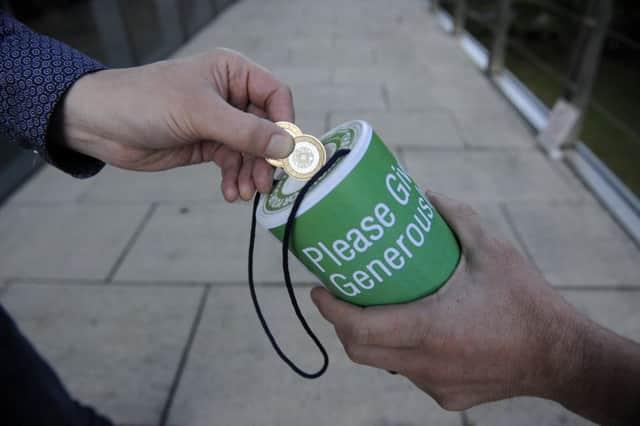Social enterprise SoGive poised for launch


Co-founder Sanjay Joshi told Scotland on Sunday that the idea for SoGive came about after he volunteered at charities and wanted to discover more details about how donations were used.
Joshi said that when customers buy consumer goods they see what they are getting for their money. He thought that if this information could be provided for charities, donors could see the impact of their contribution. For example, donors are more inspired hearing that their money funded 30 malaria nets in Africa, rather than just how much was raised.
Advertisement
Hide AdAdvertisement
Hide AdSoGive – co-founded with software firm SoDash’s chief technology officer Daniel Winterstein – is the result.
The not-for-profit venture has now received funding totalling £100,000 from the Scottish Government and the Hunter Foundation, a philanthropic venture founded by entrepreneur Sir Tom Hunter. “That funding is in place for 2017 so now I’m working on SoGive full time,” says Joshi, who previously worked for a strategy consultancy.
Plans are under way to raise further capital, and a crowdfunding campaign is to start next month, looking to raise £10,000 to enable the development and design of the website.
It will use information in the public domain or obtained from charities, and Joshi sees the UK as “probably the best jurisdiction” for access to data. “When charities produce their annual reports and accounts, they tend to include information obviously about the financials, but also about what they’ve achieved.” Additionally, many charities detail the number of people they reached and quantify what they’ve achieved.
Income is to be generated when people donating to charity opt to give a small, discretionary extra sum to SoGive. However, Joshi says this is unlikely to fully fund the organisation, so it will also have partnerships, “and there might be some other parties who would be willing to pay for these donation-reporting services” such as private banks or financial advisers. “There might be something in the corporate space as well.”
In terms of numbers of charities, it is targeting “in the hundreds” this year and is hopeful to exceed 1,000 soon after. “Out of the 195,000 charities in the UK, I don’t know if we’ll ever cover all of them, but it shouldn’t be long before we’re covering more than 50 per cent of them as measured by the amount of income,” Joshi said.
The initial focus is the UK, but he would ultimately like to see it “go global”.
A target of his is for the data to show not just the immediate impact of a charity, but the knock-on benefits of its work, while giving greater reassurance to donors. “It’s taking that data and using it to celebrate the work of the charity,” he said.